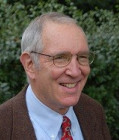How Money Corrupts American Politics
This memo is part of a series written for SSN Forum on Money in Politics.
Money cannot always buy election results; weak candidates often lose even when they outspend their opponents. Nor is outright bribery very common; elected officeholders rarely sell specific votes directly Yet the perfectly legal flood of money that pervades American politics has fundamentally corrupting effects.
The effects of money are manifold, subtle, and hard to pin down, but a number of pathways of influence can be laid out. Most are based on judgments about the best available evidence, short of irrefutable proof. But on certain key points the quantitative evidence is fairly conclusive. Political scientist Gary Jacobson and other scholars have pinned down how monetary advantages affect chances of winning congressional elections Large amounts of money are virtually essential if a candidate is to have any serious chance of winning. Inability to raise big money leads to losing general elections, losing party nominations, or giving up even before getting started. Thus the need to raise money acts as a filter, tending to eliminate public officials who hold certain points of view – even points of view that are popular with most Americans.
The need for money tends to filter out centrist candidates. Most congressional districts are gerrymandered to ensure a big advantage for one party or the other, so that election outcomes are actually decided in low-salience, low-turnout, one-party primary elections. Primaries are usually dominated by ideological party activists and money givers, who tend to hold extreme views and to reject all but the purest partisan candidates. This contributes to party polarization and legislative gridlock in Congress.
The need for money filters out candidates on the economic left. Democratic as well as Republican candidates have to raise big money, most of which comes from economically successful entrepreneurs and professionals who tend to hold rather conservative views on taxes, social welfare spending, and economic regulation. As a result, few candidates whose views are not broadly acceptable to the affluent are nominated or elected.
The quest for money tilts candidates' priorities and policy stands. Countless hours spent grubbing for money from affluent contributors changes candidates' priorities and sense of constituent needs. As they speak with potential donors, candidates hear repeatedly about resentment of progressive taxes and "wasteful" social spending. Special tax breaks for corporations and hedge fund managers start to sound reasonable.
Affluent citizens get extra influence by turning out to vote, working in campaigns, and contacting officials. Campaign contributions are not the only way in which affluent people get involved in politics; these same people tend to be active in other ways too, underscoring their importance to candidates.
Money can tip the outcome of close elections. Money spent on media, organizing, and turnout tends to increase vote totals, giving a significant advantage to candidates favored by money givers.
Money buys access to officials. When big contributors contact officials they tend to get attention. Their economic resources enable them to get a hearing, to offer help with information and expertise – even to draft bills. Research shows that these processes boost the influence of the affluent on the policy topics and ideas officeholders consider, biasing the public agenda toward the concerns of the affluent.
The quest for re-election money affects officials' priorities and policy stands. From the moment they win office, candidates look ahead to the money they must raise for reelection, and this is bound to steal time from official duties and slant their attention toward constituents who are substantial donors.
In sum, the net effects of money in politics include distraction from the public business, exacerbation of polarization and gridlock, and distortion of policy making in wasteful, inefficient, and anti-democratic directions. These are not trivial costs to American democracy, and their impact raises the obvious question: what can be done? There is little immediate prospect for a Supreme Court decision or Constitutional amendment to reduce the impact of money on politics. But the effects of big private money could be greatly diluted through public funding – for example, by letting all citizens contribute with "democracy vouchers" (as legal expert Larry Lessig has proposed) or instituting some other system of matching small contributions. To make something like this happen – over the likely resistance of wealthy big contributors – would require a broad, bipartisan social movement. Citizens of various ideological persuasions would have to join together, much as Americans once did in broad reform movements during the Progressive Era of the early twentieth century.
